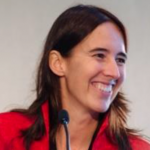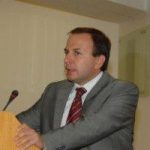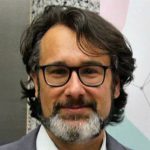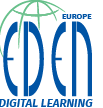
- This event has passed.
Supporting teaching and learning in schools through OER: Lessons from the pandemic
February 10, 2021 @ 00:00
Presentations & panel discussion
Description:
As a result of the impact of Covid-19, schools across Europe and the world had to close for long periods. Learning activities had to be conducted remotely. The massive transition of the European school system to online learning was facilitated by the large number of open educational resources available on the internet. OERs and MOOCs could be found in dedicated aggregator portals, institutional repositories curated by universities, foundations and public agencies or through individual recommendations by peers. Teachers were advised to actively search, use and share them.
In the webinar a number of experts, representing the European Commission, Unesco, universities, NGOs and the school system, will discuss how OER use and reuse has expanded during the pandemic and how this has contributed to support the quality of teaching and learning during these challenging times. They will also analyse what is the role of OERs in the ongoing digital transformation of schools.
Moderator: António Teixeira
António Teixeira
EDEN Senior Fellow
Associate Professor, Universidade Aberta, Lisbon, Portugal
António Teixeira is an Associate Professor of open, distance and network education at Universidade Aberta (UAb). He’s also a researcher at the University of Lisbon and collaborates with the Laboratory for Distance Education and eLearning (LE@D) and the University of Rome 3. He was Pro-rector for innovation in Distance Learning at Universidade Aberta (2006-09) and Director of the Department of Education and Distance Learning (2016-20). He was also President of EDEN – European Distance and E-learning Network (2013-16). From 2007 to 2009, he was a member of the Academic and Administration boards of the Asia’s International Open University (UAIA) and of the Portuguese Rectors Council (CRUP) specialized committees on Scientific Research and Knowledge Transfer, and Evaluation, Quality and Innovation. He’s currently an external expert for A3ES, AQU Catalunya and ACPUA quality assurance agencies in Portugal and Spain, as well as the research and innovation national agency of Uruguay (ANII) among others. Having participated in over thirty international projects, mostly funded by the European Commission and the William and Flora Hewlett Foundation, his research focus in particularly on educational innovation and open education. António Teixeira is an EDEN Senior Fellow and a member of the Board of the Council of EDEN Fellows.
Presenters: Abby Ross
Abby Ross
Chief Executive Officer
Curriki
New York, USA
Abby Ross is a seasoned technology entrepreneur with a passion and background in education technology. She started her career in Product Management at a start-up that grew to 10M users and was acquired by Expedia in 2010. Abby then led the strategy and growth of a web and mobile development firm as a Managing Partner. In 2013, Abby co-founded ThinkCERCA, a venture-backed education technology company focused on helping build critical thinking skills through writing across the curriculum. Abby was integral in raising over $20M in capital across 3 rounds of funding, developing ThinkCERCA’s initial product offering and go-to-market strategy to launch as an enterprise K-12 program. Abby led ThinkCERCA organization for 8 years as the Chief Product Officer from pre-revenue to nearing profitability. Abby is thrilled to be leading Curriki in this next wave of innovation and growth.
 Andreia Inamorato dos Santos
Andreia Inamorato dos Santos
Scientific Officer, DG Joint Research Centre (JRC), European Commission, Seville, Spain
Dr. Andreia Inamorato dos Santos joined the JRC in September 2013. Her role involves research and policy support on ‘ICT for Learning, Skills and Open Educational Resources (OER)’. Her work contributes to finding opportunities and challenges of ICT and OER implementation at a policy level to innovate and modernise teaching, learning and training practices in Europe. Her current focus is on the promotion and uptake of openness in higher education institutions and Member States. Andreia has a PhD in Educational Technology from the Open University of the United Kingdom (2011) and a Masters in Research Methods for Educational Technology from the same institution (2003). She also has a Masters in Linguistics and Literary Studies in English Language from The University of São Paulo, Brazil (2001). She worked as an OER researcher for the Open University (2006-2011) and has since been involved in several other OER and ICT-related research projects in the UK and abroad. Andreia produced a national report on OER in Brazil which was published by UNESCO IITE (2011). She also acted as a consultant for DigiLearn (2011-2013), focusing on awareness raising and continuous professional development on OER and open education for governmental bodies, private and public higher education institutions and high profile enterprises in Brazil and Latin America.
 Agueda Gras-Velázquez
Agueda Gras-Velázquez
Science Programme Manager / Head of the Science Education Department
European Schoolnet, Brussels, Belgium
Dr Agueda Gras-Velazquez is the Science Programme Manager of European Schoolnet (EUN). She is the Head of the Science Education Department at EUN, in charge of overseeing and coordinating all the Maths and Science projects in which EUN is involved. Additionally, she is in charge of the day to day management of “Scientix” (the community for science education in Europe, http://scientix.eu), coordinates EUN’s work with regions and EUN’s Ministries of Education STEM representatives Working Group. In her 8 years at EUN, Agueda has been involved in over 25 European Commission funded projects and 12 private funded ones and also sits in the advisory board of a number of projects. Prior to joining EUN in May 2008, she worked as an independent eLearning Professional, as Tutor, Content designer, IT manager, Administrator, Project Manager and Consultant for international projects. She has co-authored several papers in the area of Science Education Research and has a PhD in Astrophysics from Trinity College Dublin, which she carried out at the Dublin Institute for Advanced Studies.
 Sofoklis Sotiriou
Sofoklis Sotiriou
Head of R&D Department
Ellinogermaniki Agogi, Athens, Greece
Dr. Sofoklis Sotiriou has worked at CERN, at the National Center for Scientific Research “DEMOKRITOS” in Athens and in the Physics Laboratory of Athens University. He holds a PhD in High Energy Neutrino Astrophysics and a PhD in Science Education. He is the Head of R&D Department of Ellinogermaniki Agogi, one of the biggest educational institutions in Greece, where has been active in the co-ordination and development of research projects on implementation of advanced technologies (e.g. mobile applications, wearable computers, VR and AR applications, robotics) in science education and training. Since 2001 he is the Director of the Ellinogermaniki Agogi Center for Teachers Training. His main research field is the design, application, and evaluation of virtual and digital media environments that could bridge the gap between formal and informal science learning. He has been involved in a long series of EU joint research and technology funded projects. He is a member of the European Academy of Sciences (since 2003), member of the board of ECSITE (since 2004) and has served as Expert Evaluator to the European Commission FP5 & FP6 Programmes. He has also act as a consultant to the development of the FP7s Science in Society Work programme.
 Tel Amiel
Tel Amiel
Director, UNESCO Chair in Distance Education
University of Brasilia, Brasília, Brazil
Tel Amiel is a professor in the Department of Methods and Techniques at the Faculty of Education of the University of Brasília, where he coordinates the Distance Pedagogy course. He is Coordinator of the UNESCO Chair in Distance Education (UnB). He was coordinator of the UNESCO Chair in Open Education (NIED / Unicamp, 2014-2018). He was a visiting professor at Utah State University, and visiting fellow at Stanford University and University of Wollongong. Conducts research related to public education and teacher training, in the insertion between open education, educational technology and school improvement.
